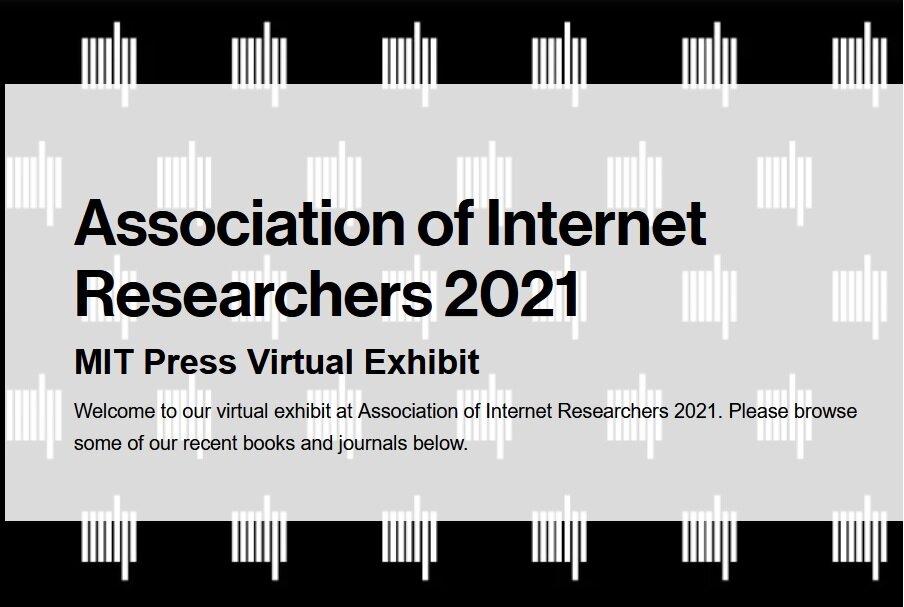Conference/BOOKS (MIT Press): democracy, activism, participation, polarisation
The first cluster of books is about digital politics of citizenship and participation. What makes one's voice heard? What are the relations between design and participation? What is the role of platforms in persuading and misinforming, in bringing people and communities together r tearing them apart?
Digital Suffragists: Women, the Web, and the Future of Democracy The book, written by a veteran journalist Marie Tessier, focuses on the gendered nature of online commenting and on the relations between technology design, media representations and democratic participation.
The Demonstration Society Not focusing exclusively on digital politics, this book looks at demonstrations as a social phenomenon. Some of these demonstrations are digital, and many are not. The broader context beyond the internet, as well as the historical view of demonstrations in pre-modern time make it very interesting theoretical framing to think about the nature of digital politics today.
Seeing Human Rights: Video Activism as a Proxy Profession In the recent years, there has been a proliferation of research on the relations between mobile digital capture (snapshots and videos taken on a smartphone in moments of political uprising, protest and violence) and the changing nature of witnessing. Is it more accurate? (because documented by someone at the heart of the events) More immediate and wide-spread? (because it can be shared fast and broadly via social media) More empowering? Some of this scholarship, especially in 2010s, in the wake of the Arab Spring, noted a move from professional visual documentation, for example by photo-journalists, to amateur capture and citizen journalism. In the last decade, Sandra Ristovska argues, we are witnessing an opposite development: "human rights organizations are seeking to professionalize video activism through video production, verification standards, and training. The result, she argues, is a proxy profession that uses human rights videos to tap into journalism, the law, and political advocacy." (book description). This book is open access.
You Are Here: A Field Guide for Navigating Polarized Speech, Conspiracy Theories, and Our Polluted Media Landscape The authors, Whitney Phillips and Ryan Milner, use very interesting terms, "poisoned media landscape" and "toxic information's downstream effects" to describe the current climate of misinformation and fake news. It will be interesting to read how the book connects the digital to environmental, and whether the environment is addressed beyond serving as a metaphor.


